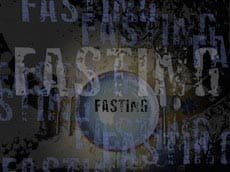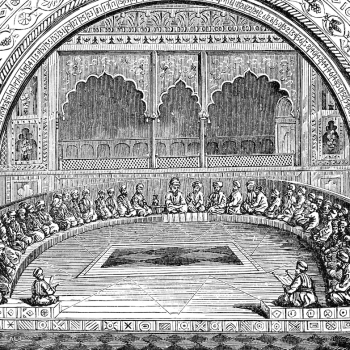By Fr. Mike Boutin
When you fast, do not look somber as the hypocrites do, for they disfigure their faces to show men they are fasting. I tell you the truth, they have received their reward in full. But when you fast, put oil on your head and wash your face,so that it will not be obvious to men that you are fasting, but only to your Father, who is unseen; and your Father, who sees what is done in secret, will reward you (Matthew 6:16-18).
Check out a modern take on "what to give up" thanks to You Tube.
 When I was a little boy, the standard question at this time of the year was always the same: "So what are you giving up for Lent?"
When I was a little boy, the standard question at this time of the year was always the same: "So what are you giving up for Lent?"
As Lent approached, my sister and brothers and I would try to decide what we needed to give up to make the forty days of Lent a "really good Lent" for that year. It almost always ended up being food: chocolate, desserts, ice cream, soda... One year I tried to give up my sister for Lent, but that didn't work!
The notion of giving something up for Lent is rooted in one of the three traditional Lenten disciplines: prayer, fasting, and almsgiving, or works of charity. The three disciplines are found in the Gospel for Ash Wednesday: Matthew 6:1-18. Fasting is an ancient discipline, practiced by all the great religions. Fasting from food is a way of simplifying our lives, and expresses our reliance on God who is our Bread for the journey.
We Americans spend a lot of time and energy on food. Eating out, restaurants, cooking shows on TV and the Internet, recipes and cookbooks, shopping for food, kitchen renovations -- all of it just a tiny smattering of our preoccupation with eating and food. Our nation's obesity epidemic is another obvious sign. Conversely, our teens are suffering in growing numbers from eating disorders; bulimia and anorexia are prevalent in boys and girls today. How much food is enough?
Meanwhile, two-thirds of our world goes to bed hungry each day. Twenty-six thousand children die of malnutrition every day. Many scientists believe that our world has more than enough food for the planet to survive. The problem is that too few of us have too much food, while most of the planet doesn't have nearly enough.
Fasting is a way of not only expressing our trust in God to provide us with our daily bread, but also is a way for us to go hungry voluntarily so that we might be in solidarity with all those who have to go to bed hungry each night because they have no other choice. We fast from food so that we might have more resources to share with those who go without. Fasting then is a discipline closely united to works of charity, or almsgiving.
Catholics fast on Ash Wednesday and Good Friday. We go without on those days (strictly speaking: we eat one full meatless meal, with no snacks, and the two other meals we eat combined should not total the one full meal we eat on those days so that we truly go to bed hungry!), and on all the Fridays of Lent, we abstain from meat, not so that we can have that baked stuffed lobster, but again, so that our simple meatless meals can remind us of the plight of others.
But maybe my spiritual life needs me to give up something else this year besides desserts or alcohol. Maybe, like the bishops in the YouTube segment suggested, I need to fast from email and the Internet one day a week, so that friends and family can spend more quality time with me. Maybe I need to fast from gossip... or harsh words... maybe I need to fast from cheating or cursing...
What do I binge on that keeps me away from God? What do I consume in excess that prevents me from growing in holiness? What do I need to give up in order to love my sisters and brothers more?
Now pray...
Father Mike Boutin is the co-pastor of the Church of the Blessed Sacrament, Walpole, MA, and travels widely, leading pilgrimages throughout the world to various Catholic religious sites. He is a frequent speaker on liturgy, music, spirituality, and pastoral ministry.
2/22/2010 5:00:00 AM




